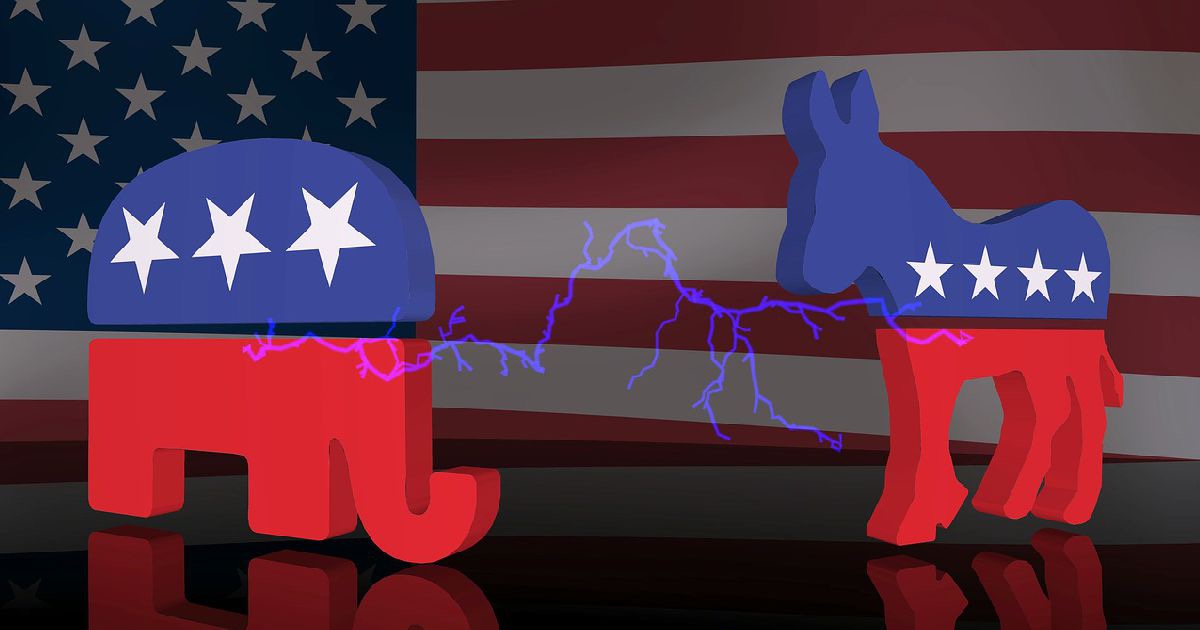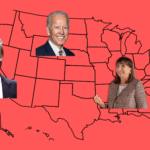Growing up in the early 2000s, I used to see those little “Coexist” bumper stickers on cars all over town. I don’t see them anymore. Maybe the bumper sticker trend faded, perhaps I moved to a more conservative area (let’s be honest, those people were liberals), or maybe people just gave up on the idea of 330 million people all getting along.
The idea of coexistence does, unfortunately, feel quite quaint these days.
Polls and studies back up what we all anecdotally know to be true: Americans are deeply divided and increasingly hostile toward those with opposing views. Startling numbers of Americans say they would go so far as to fire someone based on their vote for president. Meanwhile, 56 percent say they expect to see violence following the election, and another 61 percent fear we are on the verge of a second civil war.
To be honest, this friction shouldn’t come as that much of a surprise.
Have you ever marveled at how different we are? Or really contemplated the sheer number of ethnicities, nationalities, religions, cultures, or backgrounds represented in this country? Before even considering political ideologies, our country is filled with people whose lived experiences, beliefs, and customs are radically different. 56 percent say they expect to see violence following the election, and another 61 percent fear we are on the verge of a second civil war.
That’s not only true because of the diversity in the people who come here, it’s true based on our own regional differences as well. As someone who grew up in the South, visiting California for the first time felt like visiting another country. The way they talked, the foods they ate, their clothing styles—all were radically different from where I grew up in Kentucky and Alabama.
And to complicate matters further, Americans live in social bubbles. We are increasingly unlikely to know people who are different from ourselves. This can lead to bias, a lack of perspective on other viewpoints, and a simplistic understanding of other groups.
We are really 50 micro-countries that have chosen to coexist as one. It even says as much in our name: the United States. Unlike some other countries, we don’t all share a common history, religion, ethnicity, accent, or culture.
When you think about it, our success as a country is actually more surprising than our current division. Instead of worrying about the future, we ought to examine the ways in which this vastly diverse group of people has managed to get along and prosper for almost 250 years. This is a feat the world has never seen before—and we owe our success to the brilliance of our founders and the limited government structure they provided us.
From the beginning, even before we were this big and diverse, our system was designed to allow for peaceful coexistence among very different people. Each state possesses its own executive, legislative, and judicial branch, along with its own constitution. And the Tenth Amendment of the US Constitution grants most political authority to the states:
The powers not delegated to the United States by the Constitution, nor prohibited by it to the States, are reserved to the States respectively, or to the people.
The founders’ intention was always localized control.
This structure of government is what we call federalism. The founders intended the states to operate as laboratories for new ideas and programs. If a state tried a successful approach to a problem, others would take note and replicate it. If a state did something terrible, the harm was mitigated and would impact fewer people. And the federal government was on hand to step in if a state infringed upon individual rights.
The founders recognized that a big, centralized federal government could not adequately represent people from so many different places. They also knew it should not attempt to micromanage the lives of diverse citizens with varying interests.
In Federalist No. 45, James Madison wrote, “The powers delegated by the proposed Constitution to the federal government are few and defined. Those which are to remain in the State governments are numerous and indefinite.”
The objective was to ensure people in one state did not dictate the ways and rules of life for people in another. This structure also ensured people had a more direct line of access to their representatives in the states—meaning they could much more effectively participate in their political process and work to set or change laws that impacted them.
In contrast, our federal government was given a limited number of functions, laid out explicitly in the Constitution. These include the authority to coin money, regulate interstate commerce, declare war, raise and maintain armed forces, and establish a Post Office. But the federal government has expanded far, far beyond its original bounds.
We now have a gigantic federal government that involves itself in everything from healthcare to education to marriage to social media. This is the root cause of our division.
When another person’s vote has the ability to wield enormous power over your life and make sweeping changes in your community, that is going to lead to more than hostility. In fact, it is unsustainable—and could eventually lead to a breaking up of our country.
People in California shouldn’t be able to force their way of life on people in South Carolina, or vice versa. We are very different people, with different religions, cultural practices, ways of life, and population sizes.
Famed economist Milton Friedman perhaps predicted and expressed this problem best:
Government has three primary functions. It should provide for military defense of the nation. It should enforce contracts between individuals. It should protect citizens from crimes against themselves or their property. When government– in pursuit of good intentions tries to rearrange the economy, legislate morality, or help special interests, the cost comes in inefficiency, lack of motivation, and loss of freedom. Government should be a referee, not an active player.
Big government makes people fear one another and drives distrust. In a free-market economy, people have to provide goods or services that improve the lives of their fellow man in order to make a living. In a crony capitalist economy, people instead petition the government to stomp out their competitors, protect their interests, and improve their lives to the detriment of their fellow citizens.
In a country with a limited government, citizens would be free to practice their religions, customs, and culture as they wish. A federal election would not greatly impact you or your neighbor. The federal government would never enter the equation on most everyday issues in a person’s life. But in a country where people use the federal government to force their customs, religions, and practices on others, a culture war is formed where Americans feel they have to fight and defeat those who are different than themselves just to preserve their way of life.
This isn’t sustainable. We’re on a dangerous path, and Americans are right to fear violence, retaliation, or even another civil war (of sorts) if we don’t change course.
A return to federalism is the only realistic alternative—and how we get out of this mess.
Limited government and individual liberty are more than popular slogans, and many of those on the Right need to return to these values as much as those on the Left do.
A limited government allows people to find local solutions, cooperation, and sustainable approaches to society’s ills while ensuring that each individual person is secure in their natural rights and has the opportunity to build the life that best suits them.
If we want America to be great again, we’ll remember what made us great in the first place: our diversity, our values of limited government and individual rights, and our commitment to a peaceful coexistence. That is American exceptionalism.

Hannah Cox
This article was originally published on FEE.org. Read the original article.





6 comments
… [Trackback]
[…] Find More on on that Topic: thelibertarianrepublic.com/the-only-way-to-stop-polarization-from-tearing-america-apart/ […]
… [Trackback]
[…] Read More on to that Topic: thelibertarianrepublic.com/the-only-way-to-stop-polarization-from-tearing-america-apart/ […]
… [Trackback]
[…] Information to that Topic: thelibertarianrepublic.com/the-only-way-to-stop-polarization-from-tearing-america-apart/ […]
… [Trackback]
[…] Read More to that Topic: thelibertarianrepublic.com/the-only-way-to-stop-polarization-from-tearing-america-apart/ […]
… [Trackback]
[…] Information on that Topic: thelibertarianrepublic.com/the-only-way-to-stop-polarization-from-tearing-america-apart/ […]
… [Trackback]
[…] Find More here to that Topic: thelibertarianrepublic.com/the-only-way-to-stop-polarization-from-tearing-america-apart/ […]